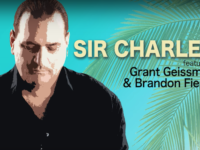For more than forty years, Charles Lloyd has been the small combo leader making distinctively impressionistic and soulful kind of small combo jazz. His tenor’s delicate, almost alto-like timbre is instantly recognizable from just a single note. His prolific periods of the late sixties and since the late eighties have produced consistently strong albums. Many stars have played in Lloyd’s band, and in many cases, gotten their major career boosts playing behind him. Jack deJohnette, Cecil, McBee, Keith Jarrett and Michel Pettruciani all gigged in his group. And yet, Lloyd is oddly not often considered when the subject of major living figures in jazz comes up.
Charles Lloyd is the jazz legend who is hidden in plain sight.
There have been nearly an album a year from Lloyd since he came of of semi-retirement and signed with ECM Records about twenty years ago. It could be a daunting task just to decide where to start with his discography with that label since they’re all serious efforts. When his latest Rabo de Nube was issued this past March, I was tempted to forgo writing about it, just because as good as I knew it was going to be, it’s still “just another Charles Lloyd” album. That is, until I actually listened to it.
Rabo de Nube is the first live recording of his working quintet in some time, and his first since he’s started his long association with ECM. Rueben Rogers is on double-bass, while Eric Harland plays the drums and percussion.
For piano, Lloyd chose yet another pianist destined for greater things after his stint with with Lloyd is done: the young, talented Jason Moran. Actually, Moran is already established as a major solo artist in his own right. Regardless, even if he may not develop into the greatest pianist under Lloyd’s tutelage, he could very well be the best fit ever for the leader’s style. Moran plays the piano much as Lloyd plays the sax: favoring emotion and well-placed—sometimes unpredictable—notes over sheer chops (which he still has in spades).
For this live recording, Lloyd chose a setting that provided excellent acoustics: the Theater Basel, in Switzerland. That, combined with polite European audiences and a virtually flawless performance resulted in an live document that Lloyd should be proud of.
The concert starts off on a highly progressive footing; “Prometheus” is a kinetic, almost free number that stretches the abilities of everyone and everyone responds well. The song is just a short theme that periodically returns to signal the beginning of free form solos. Lloyd stretches out thoughtfully, supported by Rogers’ nimble and malleable bass, before Rogers himself rumbles in the upper register. His cello work gradually segues into Moran’s careful ruminations that build into a first-rate frenzy. Harland then takes his turn with some fine snare work, even belting out the theme effectively without the benefit of notes.
“Migration of the Spirit” slows the pace down considerably, as Lloyd plays in his signature lyrical fashion, with an almost melancholy feel. It’s ethereal-ness gives it a Coltrane vibe. For “Booker’s Garden,” inspired by his long-deceased trumpeter friend from childhood Booker Little, Lloyd switches over to flute, and plays it in a funky style as Moran vamps along nicely.
For “Rumanujan,” Lloyd performs with a tarogato, a single-reed wind instrument popular in Romania and sounding very much like an soprano saxophone. With it, he plays a tribal folk-dance that’s been part of his range of styles since the late sixties. Moran is channeling McCoy Tyner wonderfully within the space Lloyd gives him.
“La Coline De Monk,” as the name implies, is revealed to have been influenced by Thelonius’ own challenging, quirky composition style. Moran begins the piece a capella, before the leader trades fours with him. It’s a real treat to hear masters old and new converse with each other like this in some personal musical language that only the two understand. The song functions as an extended lead-in to the bop tune “Sweet Georgia Night.” Originally from Lloyd’s days as a member of Cannonball Adderley’s group, “Sweet Georgia Night,” is a longtime entry in his concert sets, and a crowd favorite.
The title cut “Rabo de Nube” is the only non-Lloyd composition of the set; it was penned by Cuban singer-songwriter Silvio Rodriguez, and it translates to “Tail Of A Cloud”. Nonetheless, it’s a sweet ballad in the mode of Lloyd’s own classic “Forest Flower” and it’s little wonder that he’s long been fond of this song. The amateur video below shows a different performance of that song, but with the same band at probably around the same time as the Basel concert.
Just a few days after the March 11 release of Rabo de Nube, Lloyd turned seventy years old. This live shows the old master sounding as vibrant and still as full of ideas as his bandmates half his age. He’s as much in command of his music as he was during the Flower Power days when he was the favorite jazz man of the San Francisco Bay crowd. And to think, I nearly overlooked another in a long string of solid recordings by him. You take Charles Lloyd for granted at your own risk.
- James Brandon Lewis Quartet – ‘Abstraction Is Deliverance’ (2025) - May 27, 2025
- Soft Machine – ‘Drop’ (1971, 2025 remaster) - May 21, 2025
- Marshall Allen’s Ghost Horizons – ‘Live In Philadelphia’ (2025) - May 19, 2025



